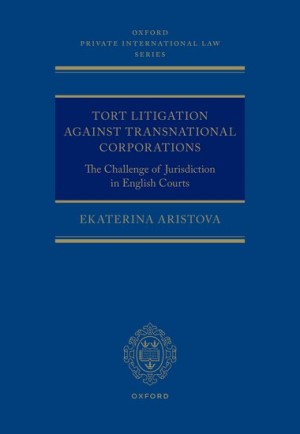
There is an emerging trend of private claims being brought against parent companies of transnational corporations for their alleged involvement in human rights and environmental abuses committed abroad. These cases form part of an international effort aimed at strengthening responsible business conduct, the success of which depends on the rules governing domestic courts' power to adjudicate disputes. However, in an increasingly globalised environment, the territorial focus of the adjudicative jurisdiction is often contrary to the transnational nature of the business activities.
To address this puzzle, Tort Litigation against Transnational Corporations seeks to answer three questions: Firstly, to what extent can English courts, under existing rules, exercise jurisdiction over an English parent company and its foreign subsidiaries as co-defendants? Secondly, is England a suitable forum for deciding transnational human rights claims? And, finally, should the jurisdictional competence of the English courts be broadened through a new connecting factor derived from the 'economic enterprise' theory?
While the book is written from the perspective of English law, it also draws on examples of similar claims in other jurisdictions to broaden the discussion. It offers a new angle to the business and human rights discourse by placing the discussion of parent company liability cases in the context of the topical debate about the changing role of private international law in a globalised world.